
A product which provides a fixed income which is better than FD & an upside like equity.
Should you invest in Real Estate Investment Trusts (REITs)?
A Thread 🧵👇


In listed REITs, Most of the completed properties are pre-leased to big companies.
Why no residential? As yields of 1-3% make them unattractive to investors.
REITs have to distribute at least 90% of their taxable income to their shareholders.
Both listed REITs trade at 6-7% dividend yield (which is also tax-free)
What about debt then? There's a restriction there too.
Not more than 49% of the total equity.
REITs are traded on the exchange (like stocks). Yes, Instant liquidity in a very illiquid product (Bulky Commercial Real Estate)
An investor can take part by buying 200 units at a time (60-70k rupees)
Under the current structure, Dividends remain tax-free (6-7% yields vs pre-tax FD yield of 5%)
On capital gains, while selling your units:
STCG of 15% on gains (if sold in less than 3 years)
LTCG of 10% on gains (if sold after 3 years)
US REITs have 5 decades of history behind them & they have continued to outperform the broader equity markets
Interesting fact: US has 194 listed REITs with a combined market cap of $1.3Trillion

This leaves an upside potential once contracts expire.
Moreover, REITs have contractual escalations of 10-15% every 3-5 years.
Directly buying RE? Get ready for 👇
- Huge Ticket Size (vs limited capital)
- Hassle of managing operational cost
- No valid data source
- Illiquid investment with high transaction costs
- Committed Occupancy & collections efficiency (higher the better)
- Weighted Average Lease Expiry (WALE)
- Sector Concentration (lesser the better) & Quality of tenants
- Healthy Balance Sheet
- Upcoming portfolio

No (in the context of India)
- Rents are a fraction of global rents
- Indian Outsourcing is a big opportunity given the resilience & performance in COVID
- Young Population needs direction via physical interactions.
Commercial RE supply is hit, especially for Single Building Projects, Speculative construction, Strata Title assets
Most are facing a cash crunch
Great for future rent scenario, if demand increases
- Slowdown in Commercial RE (follow vacancies)
- Oversupply: Renegotiation at lower rates
- Concentration risks (tenant & location wise)
- Difference b/w REIT yield & FD rate
- Broader stock market movements will have an impact on unit price
More from JST Investments
🧪 Lowered interest rates
🧪 Pharma: Growth in generics as well as CDMO
🧪 Crop Protection: Scaleup of a fungicide for a Japanese CDMO client
🧪 Healthy pipeline of new products: Supported by new capacities; Investing in Animal Health & Biocides verticals https://t.co/D70j9oriCa

Hikal: Strong
— JST Investments (@JstInvestments) August 5, 2021
\U0001f9ea Rev up 27% YoY
\U0001f9ea 22% EBITDA margin
\U0001f9ea Pat of 50crs
\U0001f9ea Growth across both pharmaceuticals & crop protection.#Q1withJST #Pharma pic.twitter.com/8lFo68KzPe
More from Economy
"A trend factor using multiple time lengths outperforms ST reversal, momentum, and LT reversal, which are based on the three price trends separately."
https://t.co/udkvsdw2Lz
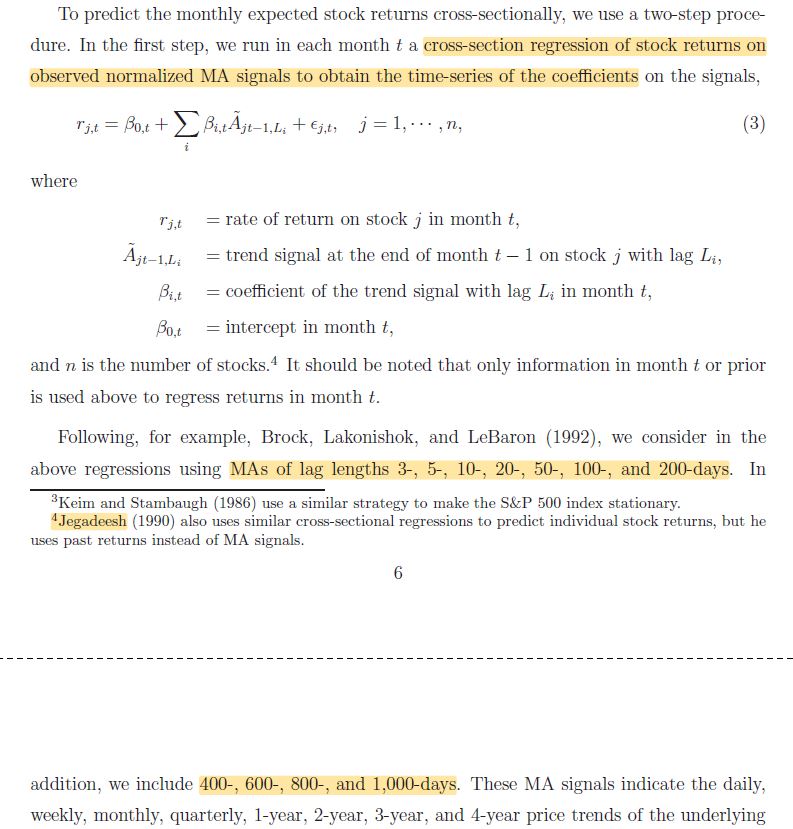
2/ This resembles combining multiple measures of ST reversal, momentum, and LT reversal (forecasts determined by walking forward rather than using signs from the full sample).
Unlike normal moving average signals, these are *cross-sectional.* More below:
https://t.co/wkIFLg9jtK
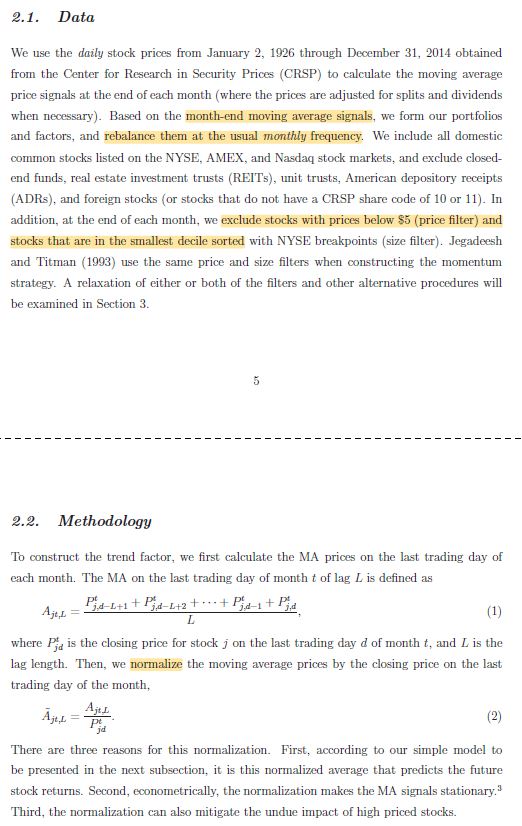
1/ Cross-Sectional and Time-Series Tests of Return Predictability: What Is the Difference? (Goyal, Jegadeesh)
— Darren \U0001f95a (@ReformedTrader) June 18, 2019
"The difference between the performances of TS and CS strategies is largely due to a time-varying net-long investment in risky assets."https://t.co/CSIn3ujN2R pic.twitter.com/XHnVmIart4
3/ Unsurprisingly, the Trend factor formed by this approach outperforms benchmarks in terms of both Sharpe ratio and tail metrics. It's combining momentum with two factors that are negatively correlated to it AND using multiple specifications.
More here:
https://t.co/x8Tloz3iyL
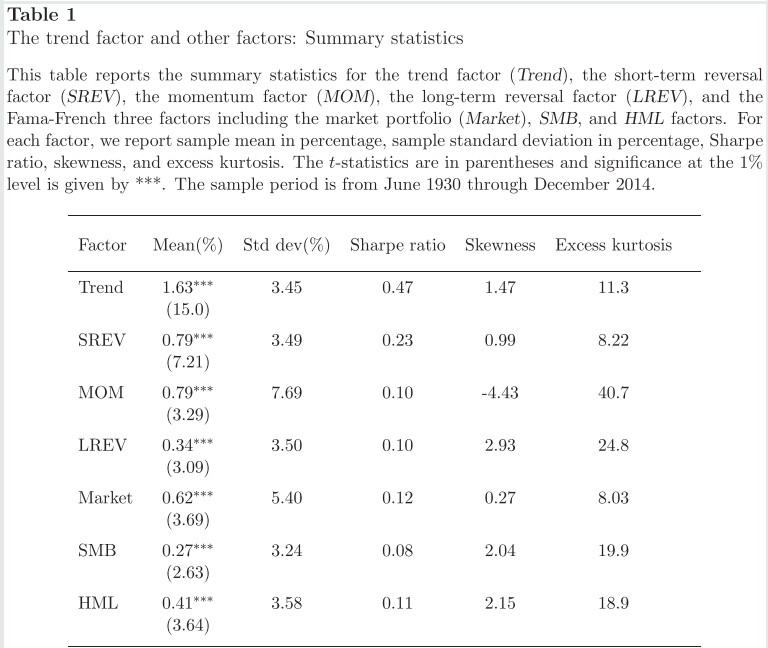
1/ An Executive Summary (in Tweet form) of our new paper
— Adam Butler (@GestaltU) March 27, 2019
Dual Momentum \u2013 A Craftsman\u2019s Perspective
Download here: https://t.co/Y9GlGNohBg
Everything that follows in this thread is based on HYPOTHETICAL AND SIMULATED RESULTS. pic.twitter.com/9m5YJnTdtq
4/ "Average return and volatility of the trend factor are both higher in recession periods. However, the Sharpe ratio is virtually the same.
"Interestingly, all of the factors still have positive average returns.
"Momentum experiences the greatest increase in volatility."
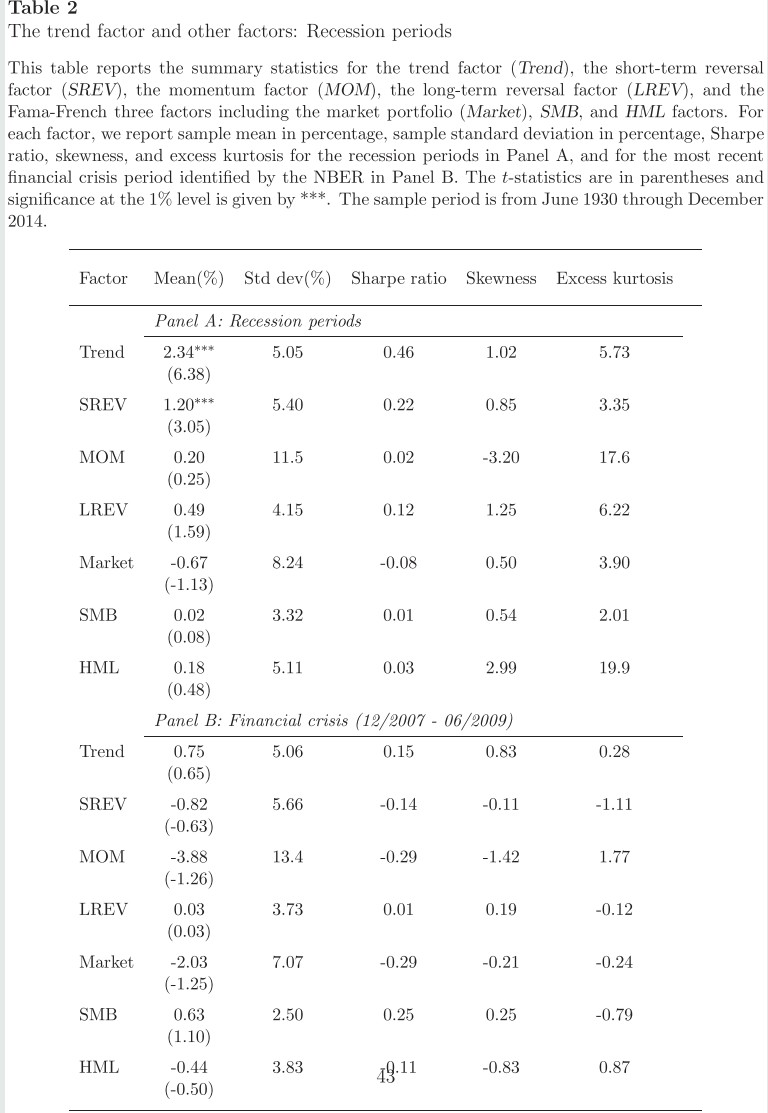
5/ "In terms of maximum drawdown and the Calmar ratio, the trend factor performs the best.
"The trend factor is correlated with the short-term reversal factor (35%), long-term reversal factor (14%), and the market (20%) but is virtually uncorrelated with the momentum factor."
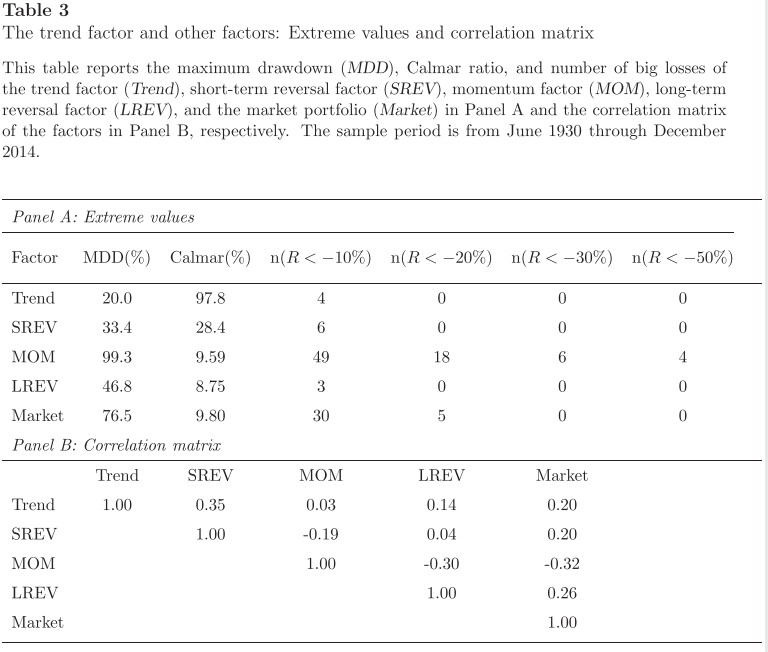
You May Also Like
One of the oddest features of the Labour tax row is how raising allowances, which the media allowed the LDs to describe as progressive (in spite of evidence to contrary) through the coalition years, is now seen by everyone as very right wing
— Tom Clark (@prospect_clark) November 2, 2018
Corbyn opposes the exploitation of foreign sweatshop-workers - Labour MPs complain he's like Nigel
He speaks up in defence of migrants - Labour MPs whinge that he's not listening to the public's very real concerns about immigration:
He's wrong to prioritise Labour Party members over the public:
He's wrong to prioritise the public over Labour Party




























